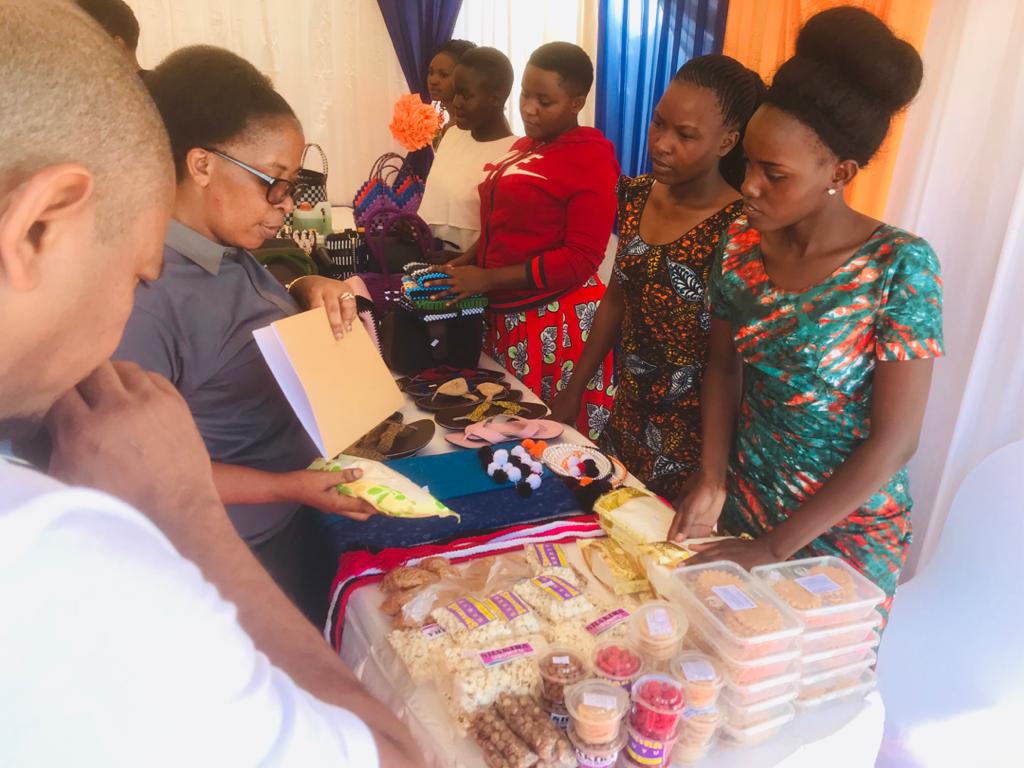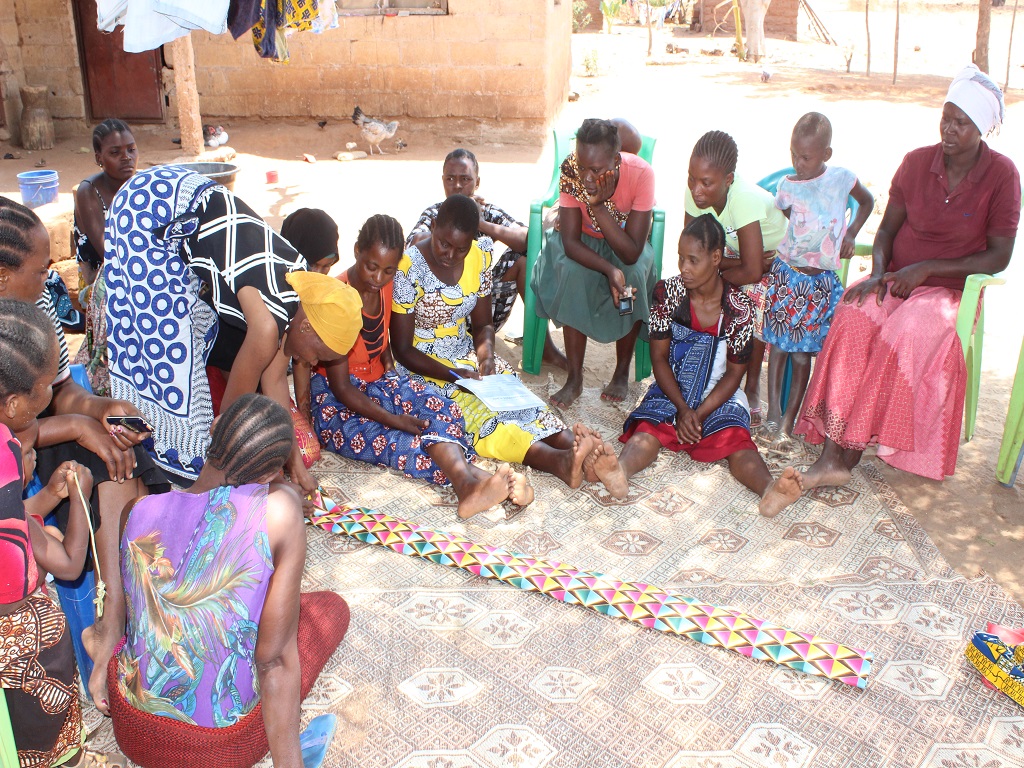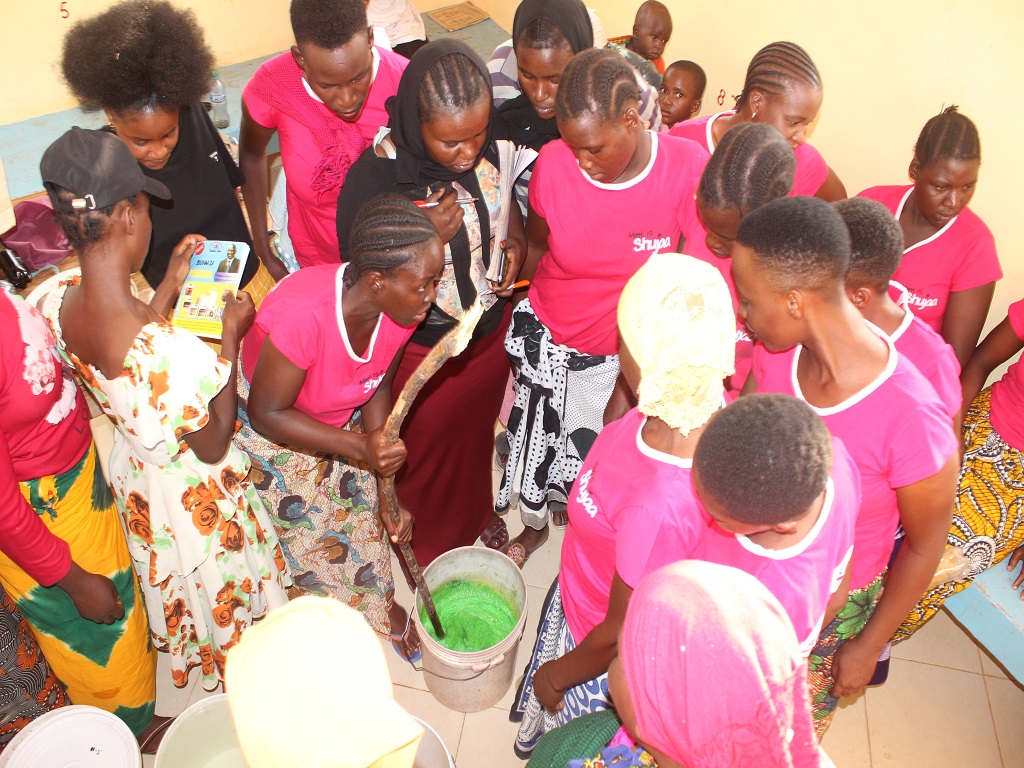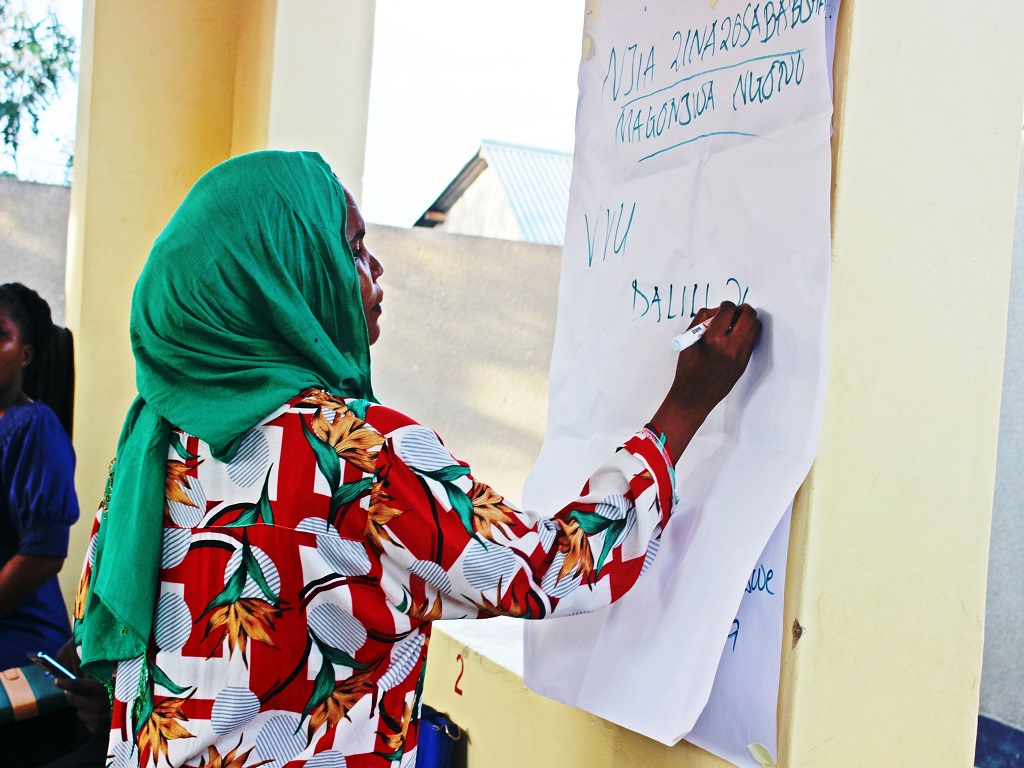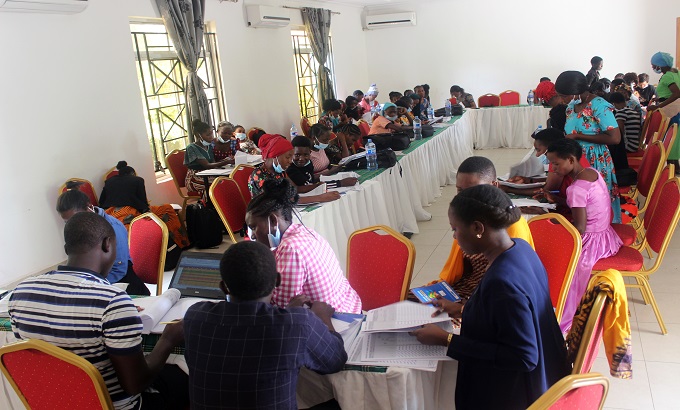
SOCIAL BAHAVIOUR CHANGE COMMUNICATION INTERVENTION
In SBCC Intervention Rafiki-SDO seeks to improve positive behaviours and social norms at the individual and community levels, as well as strengthen support for positive gender norms and behaviours within communities to reduce HIV transmission and acquisition. Rafiki-SDO provides education to key and vulnerable population through selected and trained peer educators by using specific SBCC curriculum. SBCC education is delivered by the peer educators at the venues in their respective wards as selected by the reached beneficiaries, after completing SBCC session beneficiaries rewarded tom shoes this is specifically to AGYW as it shown on the picture below; Also in SBCC intervention peer educators mobilizing beneficiaries to access biomedical services. Gender norms are reached through SASA approach (Start Awareness Support Action) by informing, agitating and creating a stir about connection of violence and HIV/AIDS. It creates a community of people who are voluntarily ready stop and listen, to take notice and engage in activities against gender based violence. In the community some people volunteered as community activist, champions and drama group who are well trained on gender issues so that to educate other people in the community concerning on gender issues
STRUCTURAL INTERVENTION
Sauti Program operate Structural Intervention where by Vulnerable Adolescent Girls And Young Women (vAGYW) who complete the community-based group behavior change communication sessions are enrolled to WORTH+ community savings groups in the designated project areas to serve as a platform to enable vulnerable AGYW to engage in positive lifestyles and become self-reliant by involving them in the integrated HIV prevention and livelihoods interventions. Primary Audience/beneficiaries for the intervention are:
1) Adolescent girls aged 15-19 who are out-of-school, not yet sexually active, but at high risk of becoming sexually active soon, and in settings where there are high levels of transitional and intergenerational sex. 2) Adolescent girls aged 15-19 who are out-of-school and sexually active. We have empowerment workers in each project ward who are responsible for mobilizing group formation and identification of suitable candidates to join WORTH groups. Vulnerability of these girls is measured by vulnerable index tool.
In WORTH groups, members are mobilized and form a group of 20-25 people. Beneficiaries are provided with 13 financial sessions which contains massages for gender transformative, profitable business as well as importance of savings. Better parenting and nutritional skills is also provided to these groups. In turn Peer educators will deliver family planning and gender norms sessions to WORTH group members. Also, WORTH group members have to be linked with CBHTC team to ensure that they got the biomedical services. Empowerment workers supported by Social Economic empowerment officer (SEEO) conducts weekly WORTH meetings, where Empowerment workers provides support to groups in number of areas. In WORTH group we have mandatory and voluntary savings which are contributed once per week. Beneficiaries also took loans from their savings and start small business to improve their income level.
BIOMEDICAL INTERVENTION
In the period of financial year 2016 and 2017, Rafiki-SDO served Adolescent Girls and Young Women (AGYW), Female Sex Workers (FSW) as well as Partners of Female Sex Workers with high quality services (group education ,individual counseling ,HIV counseling and testing family planning services ,screening and referral to STIs ,gender-based violence ,TB ,alcohol and drug use ,linkage and adherence ,support for HIV care and treatment )and other areas as assigned and in accordance with MOHSW guidelines through biomedical hired staff and Government Nurses. The biomedical services were provided through Mobile CBHTC+ services at hot spots and to WORTH+ and SBCC groups as well as through Partner Notification approach, where sexual partners of an HIV infected individual, referred to as the �index case�, are offered HTS at the mobile CBHTC+ sites or at their residence (home based testing). All biomedical services and partner notification should be offered in line with the national guidelines and Sauti biomedical SOP: index cases are identified

